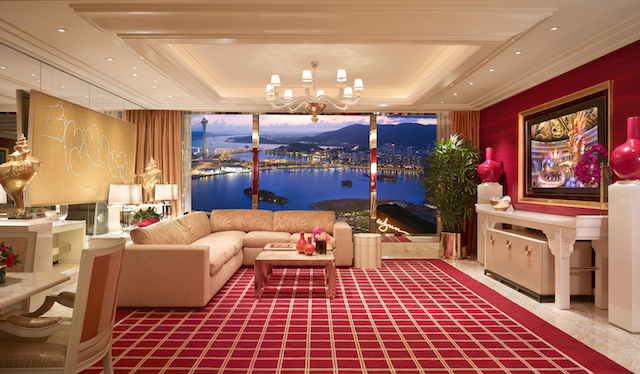How does a property go from 14% to 18% market share faster than a speeding bullet? By opening 400 new suites designed for premium players, that’s how.

Wynn Macau president Ian Coughlin has a lot to be happy about. Since opening Encore, high-limit and rolling-chip players have been flocking to his property to see the jellyfish in the tanks behind the check-in counter, feel the butterflies embroidered into the silk wallpaper, and throw down millions of dollars on his tables. There was a point last week when his market share overtook that of Sands China; it was fleeting, but must have been euphoric nevertheless. Last time we checked, Wynn had 18%, just behind Sands at 20% and SJM at 29%.
And yes, the reason appears to be little more than having 400 very nice suites to offer high net-worth players. And some nice wallpaper. And 250 attractive staff to take care of the premium players.
Seriously, greater attention needs to be paid to hotel room inventory management now in Macau. Anyone who thinks Lot 5&6 will be bad for Sands China needs to rethink the maths on that project. Because it is becoming crystal clear, as Wynn is showing, that rooms (and the service that goes with them) is becoming a very much more important factor in the most lucrative part of the market: high-limit mass and direct-VIP. It matters less how many tables Sands can get in there under the 5,500 cap than it does how quickly they can get the rooms online. This past week, the 3,000-room Venetian was 100% booked, as was the 400-room Four Seasons and 8-mansion Plaza. Where does a premium player go if he cannot get a room? The obvious answer is: elsewhere.
Readers might be forgiven for thinking to themselves, “Yeah, duh!” But this has not really become so apparent until recently, partly because of the public fixation on the market-share numbers, which are driven by junkets. Rolling-chip play through the junkets is more dependent on credit and commissions than it is on room availability, because the junkets can get a room for their players anywhere. But a property that wants to play direct with whales in Macau has increasingly got to be able to deliver the rooms – even if these players might not use them for more than a few hours per trip. Wynn and Sands are staying in the revenue-share game with SJM, despite having lesser rolling-chip volumes, by building this ebitda-rich part of the business aggressively, especially from the mainland. MGM and MPEL, by contrast, are not, and we fear they might fall further behind as they rely on the established VIP markets of Hong Kong, Japan and Southeast Asia, being too timid (or otherwise) to extend credit where it would be most effective in developing direct-play growth. (Galaxy is, for now, SJM by another name in its business model with junkets, in our view.)
Which might explain why Steve Wynn is so keen again to get going on his Cotai project. As much as Encore has given his numbers a boost, he knows well that demand is going to outstrip supply again very quickly on the peninsula over the next few years. He will not likely have more than 400 tables in Cotai. But he will need more rooms than he has on the peninsula in order to keep his place atop the totem pole of premium play in Macau as this segment of the market grows and matures. Plus a few more butterflies here and there. Stay tuned.
Used with permission & copyright IntelMacau.com & photo: Wynn Macau





















